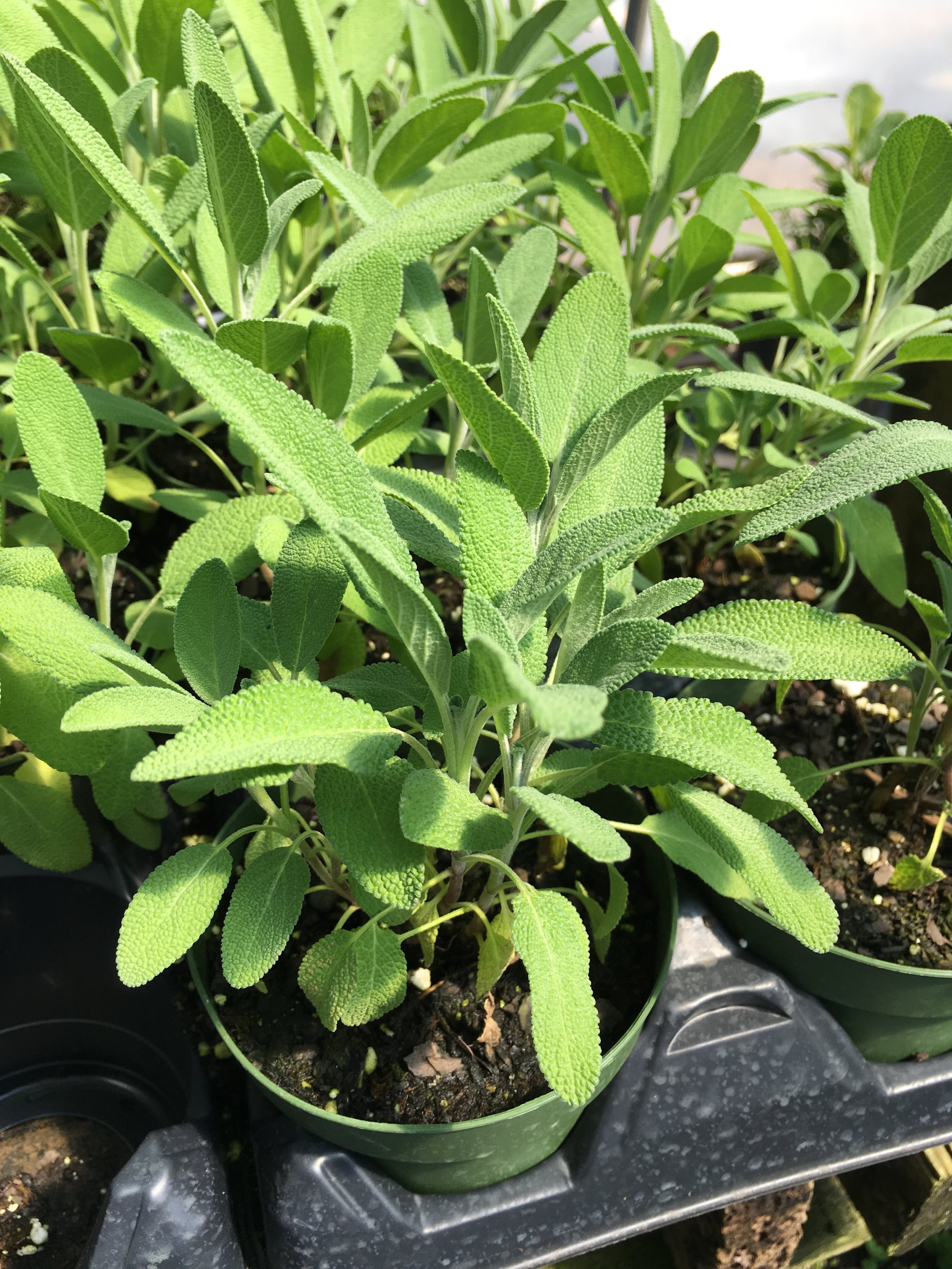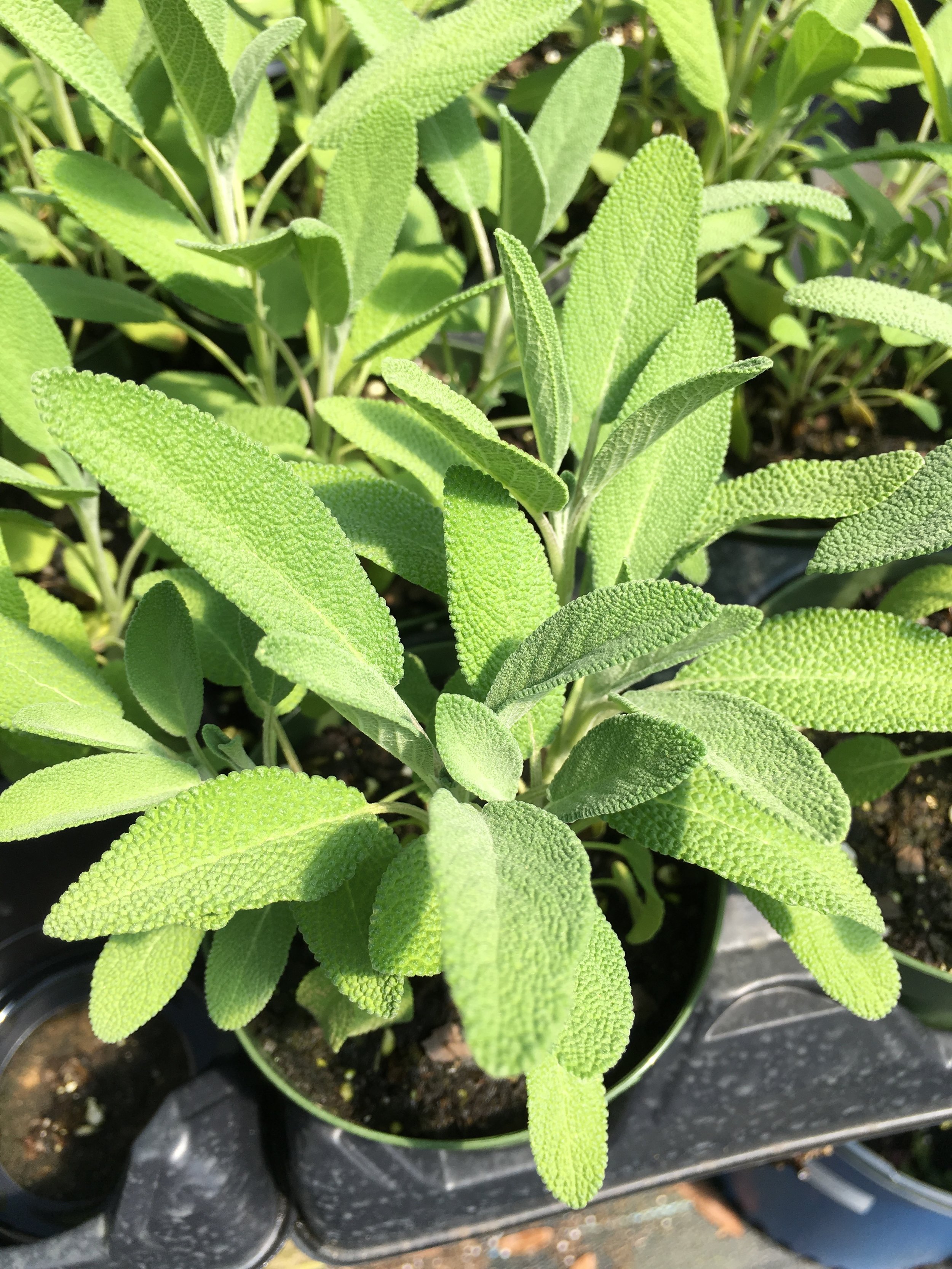Common Sage - Salvia officinalis


Common Sage - Salvia officinalis
Currently available for pick up only.
Cooks and gardeners alike are attracted to this classic, evergreen annual for the unique, pungent flavor and aroma that its gray-green leaves produce. It can form a 2.5-foot-tall by 3-foot-wide bush with woody stems that may be trimmed back to newly emerging growth or strong stems in spring. In early to mid-summer, it sends up lavender-purple flower spikes; it has both ornamental and culinary qualities in an herb garden.
Care
Provide moist but well-drained soil in full sun. This species tolerates alkaline soil.
- Plant Height 1 to 3 feet
- Plant Width 1 to 3 feet
- Zones 5, 6, 7, 8
- Uses Containers, Ground Covers
- Tolerance Deer Tolerant, Drought Tolerant, Frost Tolerant
- Moisture Dry to Medium
- Bloom Early Summer, Summer
- Characteristics Fragrant Foliage
- Light Full Sun
- Maintenance Low
- Growth Rate Moderate
- Plant Type Annual in Zone 9
Sage Benefits
Sage has one of the longest histories of use of any culinary or medicinal herb.
- Anti-inflammatory
- Antiseptic and antibacterial
- Reduces muscle tension
- Relieves indigestion
- Relaxant
- Reduces menopausal symptoms
- Improve memory
Internally, a tea made from sage leaves has had a long history of use to treat sore throats and coughs; often by gargling. It was also used by herbalists for rheumatism, excessive menstrual bleeding, and to dry up a mother's milk when nursing was stopped. It was particularly noted for strengthening the nervous system, improving memory, and sharpening the senses.
